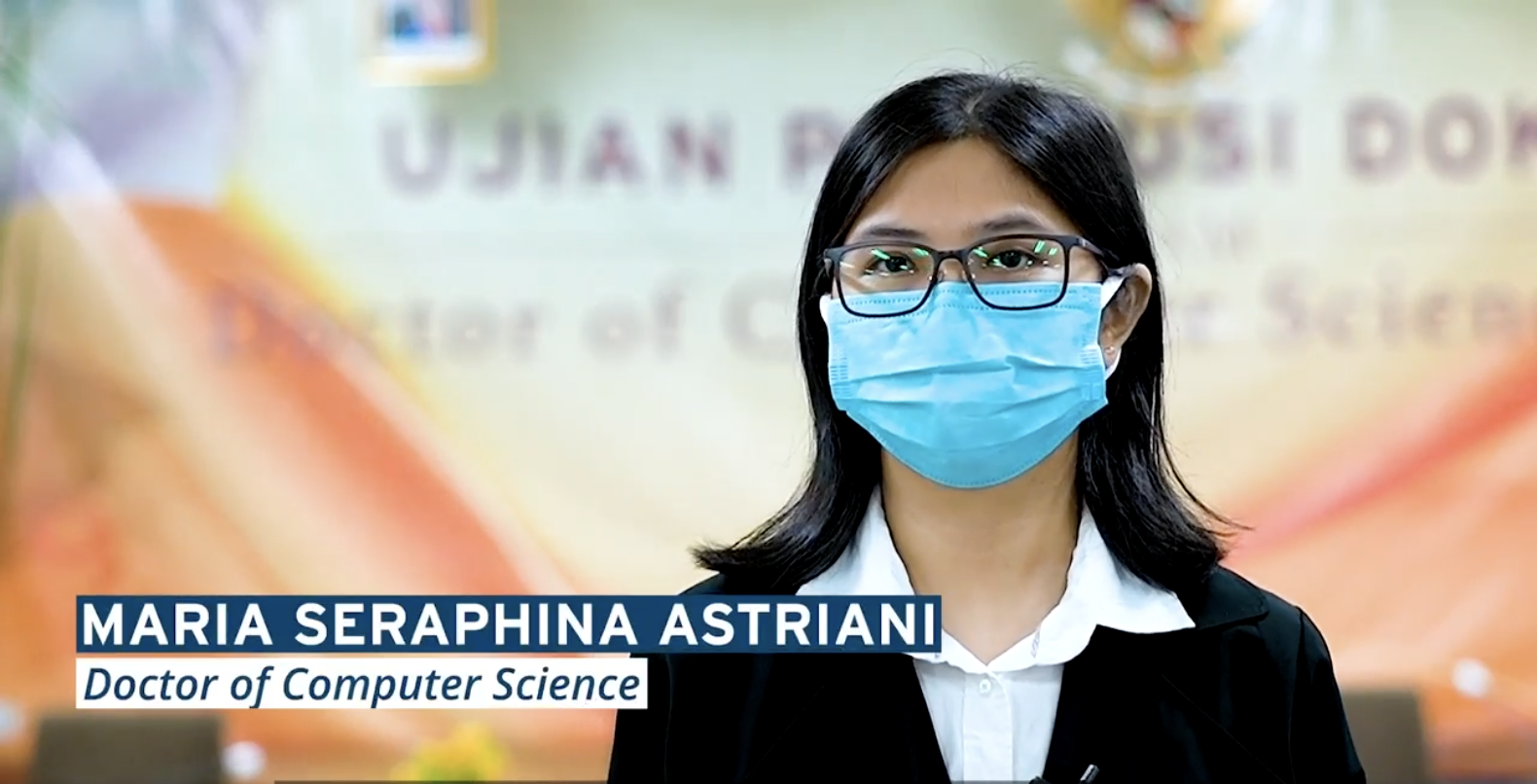Helping Seniors and People With Disabilities Receive Medical Help After a Fall Through Technology

One of BINUS UNIVERSITY’s vision is empowering BINUSIAN to continuously improve society’s quality of life. Dr. Maria Seraphina Astriani from Doctor of Computer Science – BINUS Doctoral Program demonstrates how her research can help seniors and people with disabilities minimize the risk of fatal injuries following a fall.
Her dissertation, titled “Human Fall Detection Method Using Accelerometer and Gyroscope Sensors in Smartphone With Unconstraint Orientation”, was based on the fact that seniors and people with disabilities are more prone to falling due to their physical limitations. They are also more susceptible to fall-related injuries that may lead to fatal consequences. When someone falls hard and received a hard blow to their body parts, this can result in losing someone’s mobility, or even lead to death.

When older people and people with disabilities live alone without someone else to watch and take care of them, getting the first aid after a fall can be a challenge. This can cause them to get a delayed response and increase the risk of fatal injuries.
Dr. Maria’s research focuses on how accelerometer and gyroscope sensors in smartphones can be utilized to detect human falling motion. When someone falls, the sensors will detect the motion and notify his or her emergency contact, therefore they can receive medical help early.
A gyroscope is present today’s smartphones to sense rotational motion and changes in orientation. This is the same technology used in mobile games, we are able to play using motion sense in our phones or tablets. Similarly, it is required in a smartphone to be able to watch 360-degree videos or photos. The photo or the video moves, when we move our phone due to the presence of gyroscope (Tech Ahead). On the other hand, accelerometers in mobile phones are used to detect the orientation of the phone. Accelerometers are also used to provide ‘steps’ information for a vendor’s ‘health’ application (GSM Arena).
Dr. Maria’s research has a wide-reaching implications both for patients and doctors, one of them is to assist in clinical supervision. Doctors can monitor their patients’ condition and provide a more responsive care. Dr. Maria hopes that her research can be regarded as a high-accuracy human fall detection method with an easy application, and that her research can contribute to society.

